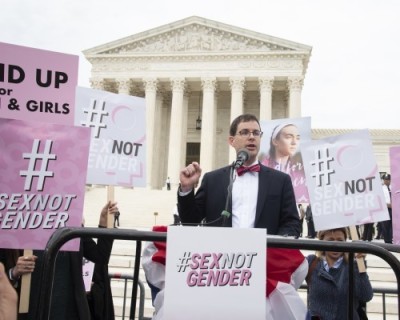Supreme Court ruling on Civil Rights Law, LGBT workers may have disastrous effects on women
The United States Supreme Court issued a decision Monday that could not only affect Americans who simply want to rely on the law as it is written, but the fair treatment of women and girls.

In deciding R.G. & G.R. Harris Funeral Homes v. Equal Employment Opportunity Commission, Zarda v. Altitude Express, and Bostock v. Clayton County, the Supreme Court ruled that “sex” in Title VII of the Civil Rights Act of 1964 includes “sexual orientation” and “gender identity.”
The legislators who wrote the Civil Rights Act in the 1960s certainly did not intend for “sex” to mean anything other than the condition of being either male or female. And courts have read the law in this way for over half a century. The Supreme Court’s decision circumvents our constitutional order, where Congress creates laws and the executive branch enforces them by allowing the executive branch to rewrite laws. As Justice Samuel Alito explained in dissent, “There is only one word for what the Court has done today: legislation.”
The court’s decision in Harris Funeral Homes could be especially devastating to the fair treatment of women and girls.
This case began all the way back in 2013 when a male employee of Harris Funeral Homes, a five-generation family business in Michigan, expressed an intent to begin dressing as a woman at work in violation of the funeral home’s sex-specific dress code. After careful consideration of his other employees and his clients, the funeral home’s owner, Tom Rost, made the decision to part ways with this employee.
Then the unelected bureaucrats at the Equal Employment Opportunity Commission got involved. The EEOC punished Tom for violating the Civil Rights Act despite the fact that Tom had abided by the law as it is written. The EEOC had to redefine “sex” to mean “gender identity” in order to punish Tom.
Now that the court has allowed “sex” to be redefined to include “gender identity,” legal chaos culminating in unfair treatment of women and girls may well follow. We don’t have to wait and see. There are real-life scenarios already playing out.
In February, three high school women athletes sued the Connecticut Interscholastic Athletic Conference after they were forced to compete against biological males in track. The two male athletes, who identify as girls, swept 15 Connecticut state titles that were previously held by nine different women. Because of the presence of male athletes, women have lost out on the opportunity to compete and win, as well as the potential scholarship opportunities that come from competing in front of college scouts.
It should not be surprising that biological males outrun females on the racetrack. After all, men have more muscle mass, greater bone density, and lung capacity. But when “sex” is redefined, the law’s recognition of this is important distinction may be lost.
Unfortunately, the Supreme Court took a step to redefine “sex,” further jeopardizing legal protections for women and girls and failing to uphold the law as Congress wrote it.
Maureen Collins is a web writer for Alliance Defending Freedom (@AllianceDefends), which represents Chelsea Mitchell, Selina Soule, and Alanna Smith.




























